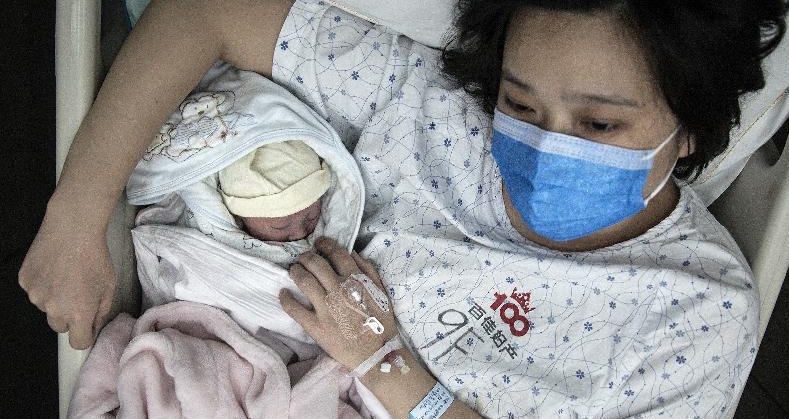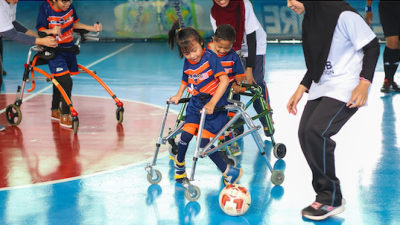By Dr Prameela Kannan Kutty / Nor Kamariah Mohamad Alwi
We must continue breastfeeding during a pandemic.
Pandemics must stimulate breastfeeding to empower immunity. In the coronavirus pandemic we must continue breastfeeding, always wash hands, wear a mask if necessary, and get all the breastfeeding support we can. That's really important because breast milk protects the baby's respiratory tract, where SARS-CoV-2 mainly infects.
We must remember that breastfeeding not only provides nutrition for growth of your baby's body and brain but also does many things that formula feeding cannot do. A breastfeeding mother "guides" her baby's immunity to fight novel viruses, and even protects beyond childhood. Diabetes mellitus and hypertension are underlying risks in COVID -19. Well, if one modifies lifestyle habits, these risks can be reduced by early breastfeeding.
How viruses may be transmitted to the newborn infant
Data of SARS-CoV-2 do not indicate that infection occurs before birth but studies show that it may be possible.
We now know that human-to-human transmission through droplets, aerosol and touch must be carefully avoided. For women who deliver, general hygiene is important but no advice on frequent washing of any part of the body other than the hand is recommended. Soon after delivery, when skin- to -skin contact between the mother's bare chest and the newborn is done, that will do no harm. It will usefully encourage bonding and allow baby's skin to be colonised by mother's flora.
Viruses can pass through breast milk and help baby's gut flora develop. Unfortunately, breast milk can also transmit some viruses such as human immunodeficiency virus (HIV). There is no evidence for breast milk transmission of the SARS-CoV-2, but we can't be certain yet. Antibodies against the SARS virus, related to the SARS-CoV-2, have been found in breast milk.
Immune responses by SARS–CoV-2
We are learning a lot about immunity in SARS-CoV-2. Simply stated, through the nose and back of the throat, the virus enters cells using receptors, multiplies in them and sometimes causes "overreaction" of immune responses which can make one very sick.
How mother's milk protects from known or unknown viruses
Breastfeeding improves baby's immature immunity. It can help in the development of immune organs, provide immune cells and factors to strengthen mucous linings of the nose and throat. It prevents viruses from attaching to these linings and can help clear them. Even without the mother's exposure to the virus, every breastfeeding mother through her milk can prevent some viruses from entering cells and can successfully destroy them. If the mother is exposed to the virus, specific antibodies can then fight the virus even better. breast milk can also "guide" a baby's immune response not to "overreact", a reason breastfed children have fewer allergies.
Breastfeeding policies during COVID -19
The World Health Organisation(WHO) recommends breastfeeding in any case whether mother or baby is infected by COVID-19. If mother is too unwell, the mother should be allowed milk expression, relactation or donor milk.
The Centre of Disease Control (CDC), however, advises separating the mother infected by COVID-19 from baby during the post-partum. Milk expression to sustain milk supply and expressed breast milk feeding are encouraged. Isolating the mother in hospital avoids infection in vulnerable groups like infants and young children.
In Malaysia, Ministry of Health guidelines advise separation of mother and baby, if suspected or confirmed of COVID-19 without allowing expressed breast milk feeding for them.
We are concerned about this. How would we support mothers and babies that have been separated for this reason? The prevalence in Malaysia for exclusive breastfeeding under six months of age is 47.1%. We hope that clear supportive measures are in place when separating mother and baby as we follow the latest Malaysian guidelines on breastfeeding in this pandemic so that breastfeeding rates do not decline, straining public health resources.
Breastfeeding is already hard enough for many new mothers, that is all the more reason why they need to be supported even more in this pandemic, due to the current challenges. Moreover, let's not forget that for now, breastfeeding is the only available vaccination against new viruses.
(Dr Prameela Kannan Kutty is Professor of Paediatrics, and Nor Kamariah Mohamad Alwi is International Board Certified Lactation Consultant.)

ADVERTISEMENT
ADVERTISEMENT


































